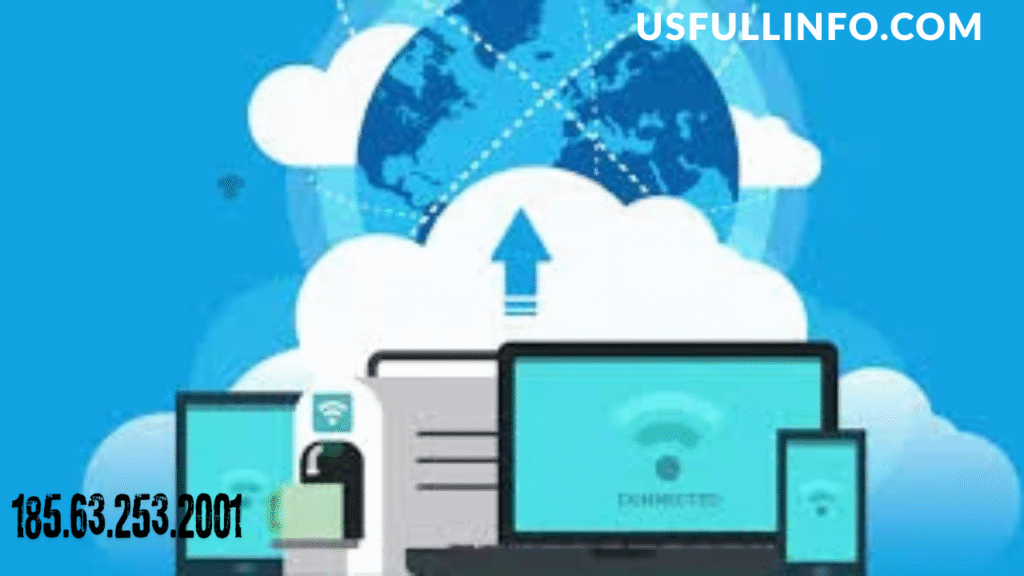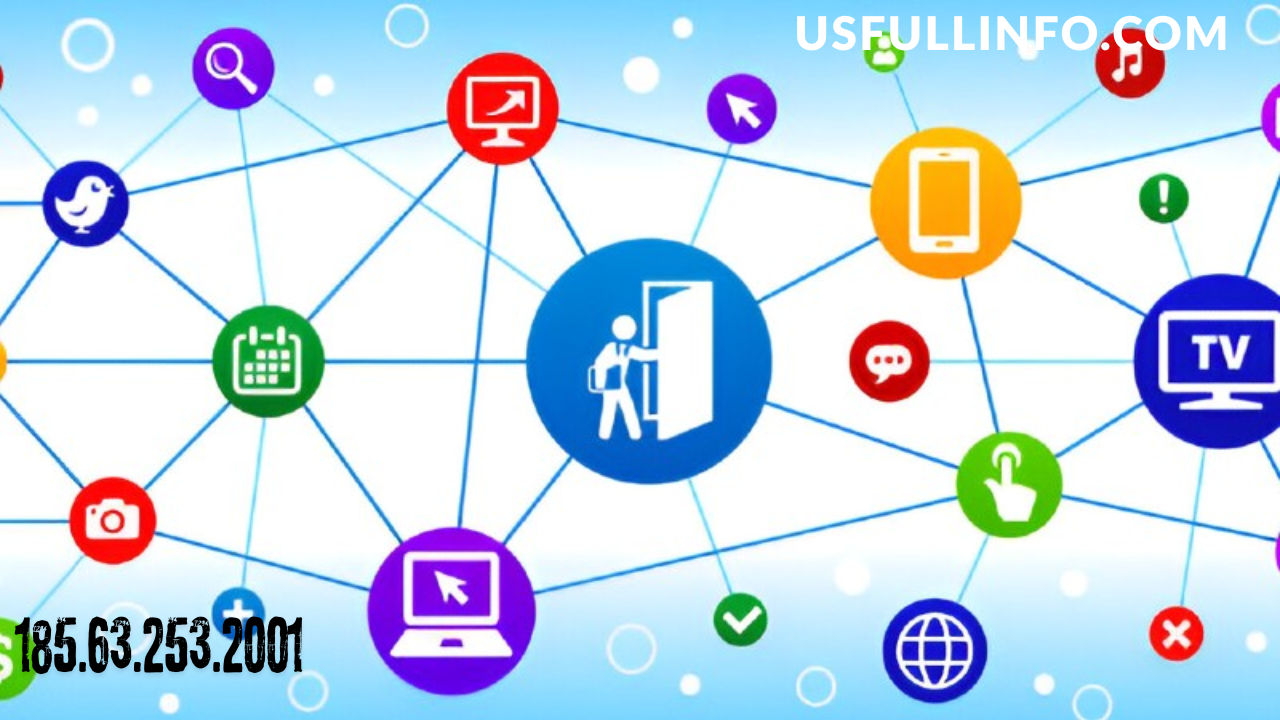In the vast digital landscape, you may occasionally come across a mysterious-looking number such as 185.63.253.2001. At first glance, it might seem like just another random string of digits, but in the realm of networking and internet connectivity, every number — especially in an IP format — carries meaning. The address 185.63.253.2001, while it appears like an Internet Protocol (IP) address, raises curiosity about what it represents, how IP addresses function, and why such addresses are important in cybersecurity, web hosting, and online privacy.
Let’s take a deep dive into what 185.63.253.2001 could signify, its structure, and how it connects to the bigger picture of digital communication.
What Is an IP Address?
Before exploring 185.63.253.2001, it’s essential to understand what an IP (Internet Protocol) address actually is.
An IP address is a unique numerical label assigned to each device connected to a computer network that uses the Internet Protocol for communication. It serves two main purposes:
- Identification: It identifies the host or network interface.
- Location addressing: It provides the device’s location in the network, helping data packets reach their intended destination.
For example, just as every house has a postal address, every device on the internet has an IP address that allows data to find its way to and from it.
There are two versions of IP addresses:
- IPv4 (Internet Protocol version 4): The most common format, such as
192.168.1.1. - IPv6 (Internet Protocol version 6): A newer, longer format like
2001:0db8:85a3:0000:0000:8a2e:0370:7334.
Is 185.63.253.2001 a Valid IP Address?
At first glance, 185.63.253.2001 looks similar to an IPv4 address. However, standard IPv4 addresses consist of four groups of numbers, each between 0 and 255, separated by periods — for example, 185.63.253.200.
The extra digit (2001) at the end makes this sequence invalid as a standard IPv4 address. It’s possible that the intended format was one of the following:
- 185.63.253.200 → a valid IPv4 address.
- 2001: followed by more digits → possibly an IPv6 prefix.
Therefore, the number 185.63.253.2001 may be a typographical error, a misformatted entry, or a placeholder used for testing or illustrative purposes in technical documentation.
Possible Interpretations of 185.63.253.2001
There are several possible explanations for the existence or appearance of this number:
- Typographical Error:
Someone may have mistakenly added an extra digit when typing the IP address. - Private/Internal Network Reference:
In some cases, such addresses are used within internal testing networks that don’t connect directly to the public internet. - Misconfigured IPv6 Notation:
The “2001” at the end could indicate an IPv6 address prefix that was incorrectly formatted. IPv6 addresses commonly start with numbers like “2001:” to designate global unicast addresses. - Placeholder in Software or Scripts:
Developers often use non-functional or dummy IPs in code or configurations for demonstration, simulation, or testing purposes.
Understanding IP Address Classes

To better contextualize 185.63.253.2001, it helps to know where “185.63.253” falls within IP classification systems.
The first octet, 185, places it in the Class B or Class C range, typically used for medium-to-large organizations and internet service providers.
- Class A: 1–126
- Class B: 128–191
- Class C: 192–223
Given that 185 lies between 128 and 191, it is associated with Class B, commonly used for networks requiring a moderate number of IP addresses.
This means that 185.63.253.x likely belongs to a registered network range, possibly allocated to a hosting company, internet provider, or data center located in Europe, as many 185.x.x.x addresses are registered there.
IP Addresses and Cybersecurity
Whenever a unique IP address such as 185.63.253.2001 surfaces, cybersecurity experts may analyze it for potential risks. Malicious actors often hide their activities behind IPs, and security researchers routinely track unusual or suspicious IP patterns.
However, because 185.63.253.2001 isn’t a valid format, it’s unlikely to be associated with a real server or device. Still, it reminds us how important IP verification is in protecting networks from attacks, spoofing, or unauthorized access.
Key Security Practices Related to IPs:
- Check authenticity: Always confirm if an IP is valid and correctly formatted.
- Monitor activity: Regularly track unknown IPs attempting to access your network.
- Use firewalls: Restrict access based on trusted IP ranges.
- Employ WHOIS lookup: To find details about ownership, region, and hosting provider of an IP.
IP Address Tracking and Geolocation
If we remove the extra “1” at the end and consider 185.63.253.200, that IP could be traced through online tools to find its approximate geographical location, network owner, and ISP.
For example, IPs starting with 185.63 are often registered to European networks, including hosting services and VPN providers. IP geolocation tools use databases to estimate where the IP operates, though results are never 100% precise.
Common Uses of IP Addresses Like 185.63.253.x
Such addresses often belong to:
- Hosting servers that run websites or cloud-based applications.
- Content Delivery Networks (CDNs) that optimize website speed.
- VPN and proxy services used to hide user identities.
- Internet Service Providers (ISPs) managing regional connections.
So, while 185.63.253.2001 may not be valid, the range it suggests (185.63.253.x) is very much active within the internet ecosystem.

Why Are IP Addresses Important?
IP addresses are the backbone of the digital world. Every time you send an email, browse a website, or connect to a Wi-Fi network, IPs silently handle the communication.
Here’s why they matter:
- Connectivity: They enable devices to exchange information.
- Security: They help identify sources of attacks or intrusions.
- Tracking: They assist law enforcement in tracing illegal activity online.
- Customization: Websites can deliver localized content based on IP-based geolocation.
The Future of IP Addressing
As internet usage expands exponentially, IPv4 addresses are becoming scarce. That’s why newer systems like IPv6 — which allow billions of unique combinations — are being implemented globally.
If we interpret 185.63.253.2001 as a mix of IPv4 and IPv6 concepts, it reflects this transition phase in networking. IPv6 offers better security, scalability, and efficiency for the growing Internet of Things (IoT) ecosystem.
Final Thoughts
While 185.63.253.2001 isn’t a valid IP address by conventional standards, its appearance sparks important conversations about internet infrastructure, cybersecurity, and the technical precision that keeps the web running smoothly.
Every IP address, valid or not, highlights how interconnected our digital world is. Whether you’re managing a website, securing a network, or simply browsing online, understanding the fundamentals of IP addressing ensures safer, more reliable digital experiences.
In essence, 185.63.253.2001 serves as a reminder of how even small technical details — like a single misplaced number — can make the difference between connectivity and confusion in today’s hyperconnected world.
Also Read: X15 Cummins EGR DPF SCR DEF Delete Kit – Everything You Need to Know






